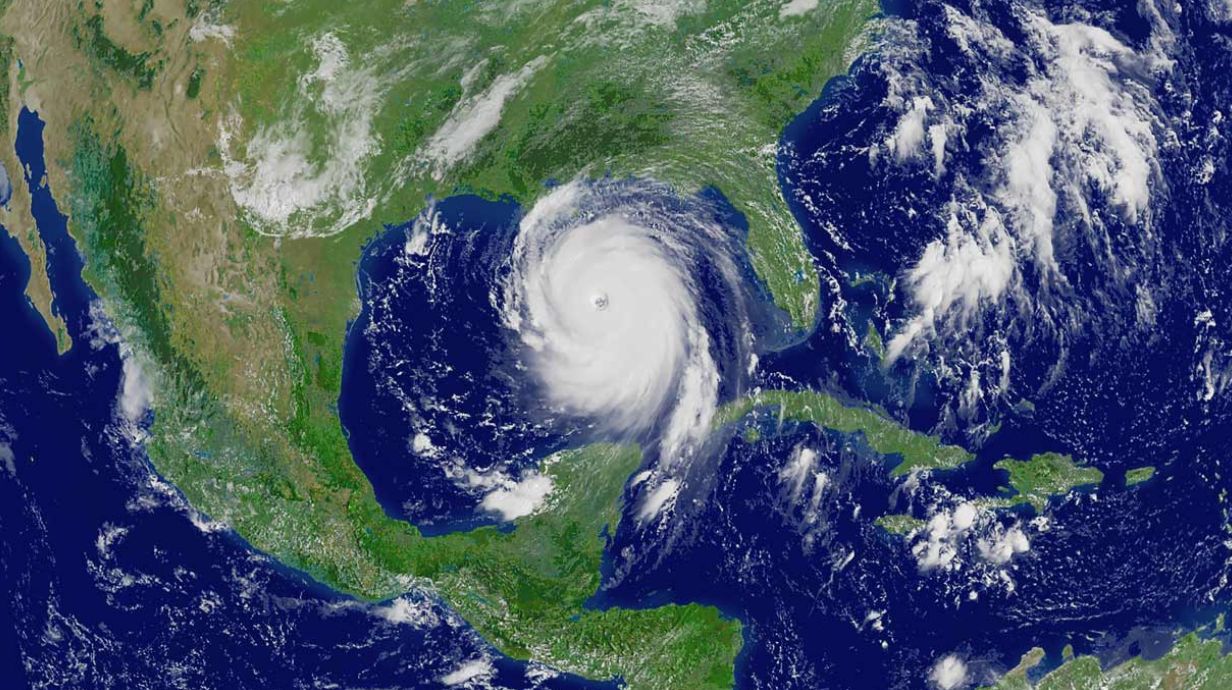Disaster Sciences, Minor
Understand disaster preparedness, mitigation, response, and recovery.
- Home
- Academic Programs
- Minor in Disaster Sciences

"Many disasters are unavoidable, and seeing how reactive rather than proactive we tend to be as a society has really opened my eyes for the necessity of furthering education in this area. I am proud and excited to be a part of a university that is doing just that."
Calli Holland ('20)
B.A. in Psychology, minor in Disaster Sciences
About the Minor in Disaster Sciences
Disasters affect the lives of every one of us. They threaten our health and well-being. They threaten our communities, our state, and our country.
The College of Liberal Arts offers the interdisciplinary minor in Disaster Sciences. It exposes students to the science and practice in fields such as emergency management and disaster mental health. The minor promotes an integrated understanding of human behavior before, during, and after disasters, and an enhanced ability to work effectively across disciplines in diverse disaster-related socio-political-cultural-economic contexts.
The disaster contexts considered include
- natural and technological disasters,
- pandemic,
- domestic and international terrorism, and
- climate change/environmental degradation.
On this Page…
Program Information
Degree
Required Credit Hours
18
Program Type
Minor
Program Location
School
Academic Requirements
Find out about credit hour and course requirements from the 2025-26 academic catalog.
Students in the Minor in Disaster Sciences complete 18 credit hours in at least 3 different disciplines outside the student's major. Twelve credit hours must be at the 300 level or higher. Students must receive a grade of C or higher on all courses to be applied to the minor.
Required courses
- CJ 325: Emergency Management and CJ
- Psy 417: Disasters and Mental Health
One course from Foundations of Human Behavior, Applications, and Contexts
- CJ 100: Introduction to Criminal Justice
- CJ 115: Introduction to Homeland Security
- CJ 285: Foundations of Terrorism
- CJ 435: Terrorism in the 21st Century
- Geol 104/114: Environmental Geology/Hazards and lab
- PH 191: Personal Health
- PH 203: First Aid and CPR
- NHM 311: Nutrition
- Pol 332: Ethnic Conflict and International Terror
- Psy 311: Psychopathology: Integrative Approaches
- Psy 319: Brain and Behavior
- Psy 321: Social Psychology
- Psy 327: Psychology and Law
- Psy 365: Environmental Psychology
- Psy 430: Positive Psychology
- SW 201: Intro to Social Work
- Soc 311: Social Problems
- Soc 313: Social Movements
- Soc 33:. Sociology of Peace and Justice
- Soc 333: Juvenile Corrections
- Soc 355: Sociology of Human Rights
- Soc 411: Environment, Technology, and Society
- Soc 431: Criminology
One course from Working with Diversity
- NHM 323: Human Development across the Lifespan
- NHM 328: Child Development
- Psy 301: Developmental
- Psy 340: Multicultural Psychology
- SW 321: Human Behavior and the Social Environment I
- SW 322: Human Behavior and the Social Environment II
- SW 326: Gerontology: Social Welfare Aspects
- SW 330: Human Diversity and Social Work Practice
- Soc 325: Sociology of Gender
- Soc 327: Genocide and Women
- Soc 336: Sociology of Religion
- Soc 413: Race and Ethnicity
Welcome from the Director
Disaster Sciences exposes students to the science and practice of emergency management and disaster mental health. Students receive training in research areas within the disaster sciences, and with respect to occupations in emergency management. They are also exposed to models of psychological first aid, and learn how to be helpful in times of disaster. The minor is of interest to those who would like to work with disaster relief organizations such as the American Red Cross or FEMA, first responders, city planners, public policy analysts, mental health professionals, and more as it promotes an integrated understanding of human behavior before, during, and after disasters.
If you have any questions, please don’t hesitate to reach out and say hello.
Stefan E Schulenberg
Professor of Psychology, Director of Interdisciplinary Minor in Disaster Sciences and Director of the Clinical- Disaster Research Center
Affiliated Faculty
Stefan Schulenberg
- Professor of Psychology, Director of Interdisciplinary Minor in Disaster Sciences and Director of the Clinical- Disaster Research Center
Anne Elizabeth Cafer
- Associate Dean for Research, Scholarship and Graduate Education and Associate Professor of Sociology and Interim Director of the Center for Population Studies
Tess Lefmann
- Associate Professor of Social Work
Dave McElreath
- Professor of Criminal Justice & Legal Studies
David H. Holben
- Professor of Nutrition & Hospitality Management

Why Disaster Science?
"The Disaster Sciences minor allowed me to expand my knowledge by combining disaster preparedness, emergency management, and mental health. I love the different types of disaster exposure and plan to use it in a career involving public health and emergency management."
Autumn Robbins
B.S. Public Health
Enhance Your Academic Experience
According to national surveys, employers are more likely to hire students who have:
- had professional internships,
- worked with people from diverse backgrounds on community service,
- collaborated with peers on projects,
- taken multiple courses with significant writing,
- produced a senior project or thesis, and
- studied abroad.
These experiences are the core of the liberal arts skills of thinking, communicating, interpersonal skills, and understanding the world around us. Showcase and enhance these skills in an internship opportunity for that first step into the professional world. We encourage students to combine coursework with these hands-on, experiential learning opportunities.
The Clinical-Disaster Research Center
University of Mississippi Clinical-Disaster Research Center (UM-CDRC) is a diverse team of researchers, graduate, and undergraduate students from the Department of Psychology. The UM-CDRC focuses on research, education, and service in the area of clinical-disaster psychology.
Natural and man-made disasters often occur unexpectedly and can cause significant difficulties for those living in the disaster-affected area. The UM-CDRC conducts research with individuals affected by disasters to better understand their experience and how they cope with these difficulties.
Your Major + Disaster Studies
Disaster Sciences can pair with a wide variety of majors on campus. Here are some likely combinations.
UG
Understand what motivates people and why people behave the way that they do.
- Oxford
- Booneville
- DeSoto
- Tupelo
UG
Understanding political actors and institutions, both domestic and international.
- Oxford
UG
Cross disciplines. Connect Ideas. Create Insight.
- Oxford
- Booneville
- DeSoto
- Tupelo
UG
Gain a rich understanding of criminal justice in the United States and abroad.
- Oxford
- Online
- Tupelo
- Grenada
- Booneville
- DeSoto
UG
Strong writers and visual storytellers with a sense of adventure will find a home in our distinguished Bachelor of Arts in Journalism program with its reputation for producing award-winning talent.
- Oxford
- Online
UG
Examine the dynamics of social interaction and social problems.
- Oxford
- Booneville
- DeSoto
- Tupelo
UG
Become a global professional with superior levels of Spanish speaking skills.
- Oxford
UG
Learn to provide much-needed social services and support for individuals, families, and communities.
- Oxford
- Tupelo
- DeSoto
Next Steps
Explore Affordability
We have a variety of scholarships and financial aid options to help make college more affordable for you and your family.
Apply to the University of Mississippi
Are you ready to take the next step toward building your legacy?
